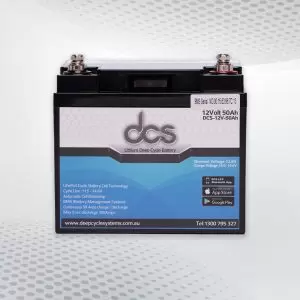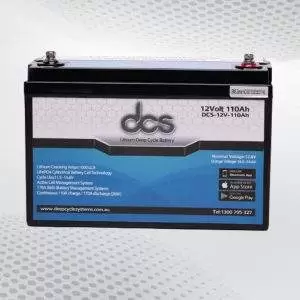Reduce Bills with Lithium Ion Deep Cycle Battery for Solar
The world has gone digital, and the devices we use every day are powered by electricity. Due to the growing demand for power, electricity companies have been working aggressively to meet this increasing demand. But what if you could save yourself some money on your energy bill? Well, you can with a Deep Cycle Solar Battery.
Electricity bills are a concern at the current time. A Deep Cycle Solar Battery is the need of the hour to lower the energy cost.
The cost of electricity is rising day by day, and people are looking for alternatives to save a huge amount monthly. Deep Cycle Solar Battery packs are the ultimate choice for people that can last for nearly a decade.
Solar energy is not only an economical option but also helps to phase out the usage of fossil fuels. You can use solar panels and lithium ion batteries with inverter in your home or office and make your own power supply from the sunlight without any pollution in the environment. The amount you will be saving on electricity bills will depend upon the intensity of sunlight, type of solar panel used, efficiency level at which solar panels convert sunlight into electricity, number of hours required to generate required power output etc., but it may still help you save up to 70% per annum as compared with conventional electric bills on average (depending upon location).
 Solar energy is also helpful for a carbon-neutral world. Get a Deep Cycle Solar Battery which is efficient due to its modern features.
Solar energy is also helpful for a carbon-neutral world. Get a Deep Cycle Solar Battery which is efficient due to its modern features.
Solar energy is the cleanest and most abundant renewable energy source. It supplies a significant portion of the world’s electricity and is used in many other applications, including water heating, cooking, and space heating. Solar technology has been advancing through research since the 1970s, and its use has been expanding rapidly since about 2010. Mainly due to this rapid expansion in usage, solar power has been chosen as one of the best ways to phase out fossil fuels from our daily lives.
Pros and Cons of Deep Cycle Battery Lithium
Pros of Deep Cycle Battery Lithium
- There are many advantages to using lithium ion batteries for solar power systems. The most obvious one is that the batteries are cost-effective, which makes them a great option for people who want to save money on their energy bills but don’t want to sacrifice quality or durability in order to do so. In addition, they offer high-quality performance and will last you a long time without any problems; this means that you’ll be able to make use of your solar panels even during cloudy days or seasons when there isn’t enough sunlight available for them to function efficiently.
- Finally, Lithium Ion Deep Cycle Batteries are sustainable because they use materials that aren’t harmful to the environment when disposed of properly (i.e., not thrown away in landfills).
Difference between Lithium Ion Deep Cycle Battery and cranking battery.
So, what’s the difference between a cranking battery and a deep cycle one? A deep cycle battery is designed to be discharged and recharged multiple times. It can also be drained down to 20% of its total capacity without any adverse effect on its performance. However, this kind of use will reduce the overall life of your lithium ion deep cycle battery. A cranking battery will only give you 50-100 cycles before it starts to lose power.
Using Lithium Ion Deep Cycle Batteries in Solar Power Systems
Lithium Iron Phosphate batteries are ideal for solar power systems because they have very low self-discharge rates when not in use: The average discharge rate of lithium iron phosphate batteries is between 5% and 8% per month (depending on how many cycles you’ve put through them). This means that if you won’t be using your solar system for a while, like during winter months, then it makes sense to store it in an area where there isn’t much activity so that it doesn’t discharge too quickly from being constantly exposed to fluctuating temperatures and humidity levels.
What to know before buying a Deep Cycle Battery Solar
Before you make a decision to buy a LiFePo4 Deep Cycle Battery solar, there are some things that you should know about this type of battery.
- What to Look for in a Deep Cycle Battery:
- The capacity of the battery is measured in Amp Hours (AH). The higher the AH rating, the more energy storage it has. In general, if you’re looking for an off-grid deep cycle battery system, then it is recommended that you choose one with more than 100 amp hours. However, if your purpose is only to power lights and small appliances, then choosing one with less than 100 amp hours would do just fine too.
- How to Choose the Right Size:
- You can figure out how much power you need by multiplying your daily usage by 1 hour, and this will give you how long your system can run without charging again based on its size (e.g., 2 days x 12 hours = 24 hrs). Consider adding an extra day or two just in case there are some contingencies like cloudy weather or other unforeseen circumstances that may cause an outage in your solar panels’ output during the charging time.
- Difference between Lithium Ion Deep Cycle Battery and Cranking Battery:
- A deep cycle marine battery has different properties than cranking batteries because they are designed differently based on their intended use. Cranking batteries tend not to be designed as ruggedly as deep cycle ones because they don’t have to withstand such heavy loads over time as those found in automotive applications do; nevertheless, they still need good performance characteristics, which means they won’t last forever either!
Best Lithium Deep Cycle Battery manufacturer in Australia
Deep Cycle Systems is a leading Lithium Deep Cycle Battery manufacturer in Australia. Their LiFePo4 batteries are made for a wide range of applications, including auto batteries, home solar batteries, gold batteries etc.
Deep Cycle Systems LiFePO4 (Lithium Iron Phosphate) deep cycle battery cells have been developed to overcome the inherent limitations of other battery chemistries, such as lead-acid and nickel-based systems. These limitations include the following:
- High Self Discharge Rate – If left sitting around for more than 3 months in storage, each cell will lose 20% of its capacity per month! This means that after 6 months, each cell has only 55% of its initial capacity remaining!
- Poor Performance at Low Temperatures – Unlike many other battery types, lithium iron phosphate can be used in almost any climate without suffering from reduced performance due to cold weather conditions or high altitudes etc.
Conclusion
When you purchase a deep cycle battery, it is important that you consider the size of the battery and its capacity. When the capacity of the battery is high, then it can store more electricity for a longer duration. So, if your application needs more power or if you want to run several devices simultaneously on a single battery, then go for a large deep cycle solar panel like lithium ion deep cycle batteries which are designed to provide uninterrupted power supply in any weather condition, whether hot or cold temperatures.
Related Website
Articles on intellectblogs
Articles on yycblogs
Articles on thebigblogtheory
Articles on blogs-hunt
Articles on blogsrain

